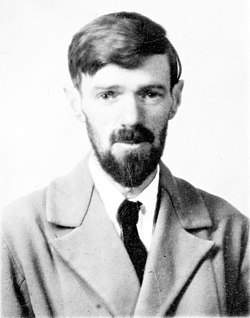D.H. Lawrence Quote
She came upon a bankside of lavender crocuses. The sun was on them for the moment, and they were opened flat, great five-pointed, seven-pointed lilac stars, with burning centres, burning with a strange lavender flame, as she had seen some metal burn lilac-flamed in the laboratory of the hospital at Islington. All down and oak-dry bankside they burned their great exposed stars. And she felt like going down on her knees and bending her forehead to the earth in an oriental submission, they were so royal, so lovely, so supreme. She came again to them in the morning, when the sky was grey, and they were closed, sharp clubs, wonderfully fragile on their stems of sap, among leaves and old grass and wild periwinkle. They had wonderful dark stripes running up their cheeks, the crocuses, like the clear proud stripes on a badger’s face, or on some proud cat. She took a handful of the sappy, shut, striped flames. In her room they opened into a grand bowl of lilac fire.
She came upon a bankside of lavender crocuses. The sun was on them for the moment, and they were opened flat, great five-pointed, seven-pointed lilac stars, with burning centres, burning with a strange lavender flame, as she had seen some metal burn lilac-flamed in the laboratory of the hospital at Islington. All down and oak-dry bankside they burned their great exposed stars. And she felt like going down on her knees and bending her forehead to the earth in an oriental submission, they were so royal, so lovely, so supreme. She came again to them in the morning, when the sky was grey, and they were closed, sharp clubs, wonderfully fragile on their stems of sap, among leaves and old grass and wild periwinkle. They had wonderful dark stripes running up their cheeks, the crocuses, like the clear proud stripes on a badger’s face, or on some proud cat. She took a handful of the sappy, shut, striped flames. In her room they opened into a grand bowl of lilac fire.
Related Quotes
About D.H. Lawrence
(1913), The Rainbow (1915), Women in Love (1920), and Lady Chatterley's Lover (1928) – were the subject of censorship trials for their radical portrayals of romance, sexuality and use of explicit language.
Lawrence's opinions and artistic preferences earned him a controversial reputation; he endured contemporary persecution and public misrepresentation of his creative work throughout his life, much of which he spent in a voluntary exile that he described as a "savage enough pilgrimage". At the time of his death, he had been variously scorned as tasteless, avant-garde, and a pornographer who had only garnered success for erotica; however, the English novelist and critic E. M. Forster, in an obituary notice, challenged this widely held view, describing him as "the greatest imaginative novelist of our generation". Later, the English literary critic F. R. Leavis also championed both his artistic integrity and his moral seriousness.
